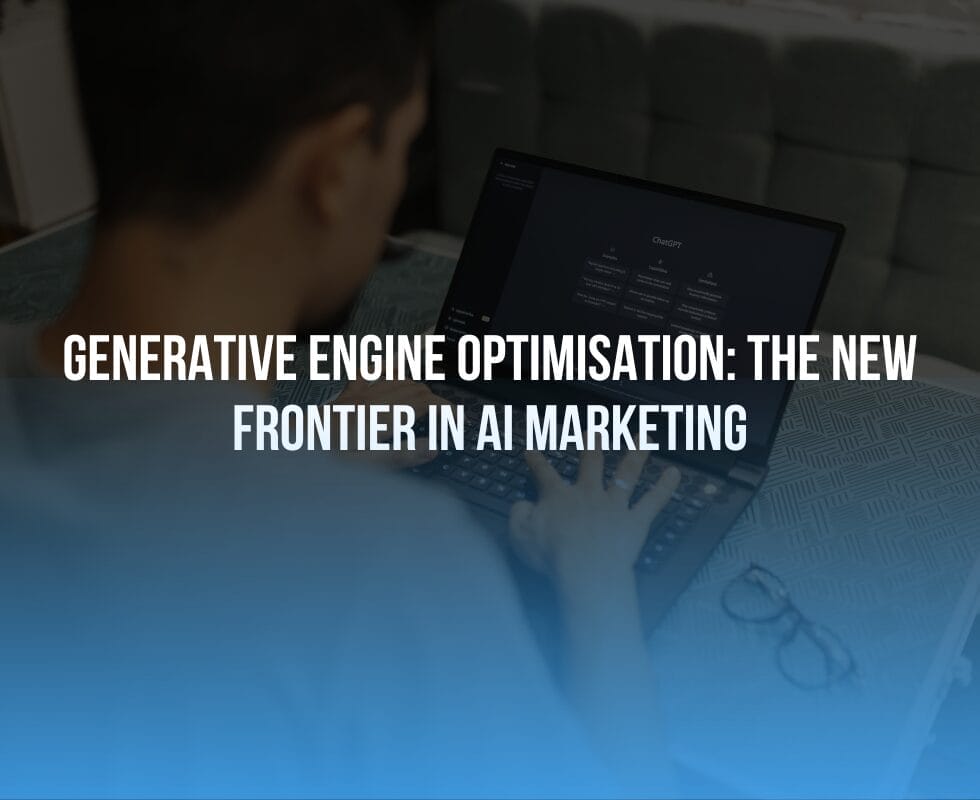
Search Has Changed, and Most Businesses Haven’t Noticed
Looks like your SEO strategy needs a serious upgrade, my friend. Gone are the days when simply ranking at the top of Google’s search results was the be-all and end-all. These days, folks are turning to AI assistants like ChatGPT, Google’s new AI Search, and Perplexity to get their answers straight away.
In fact, around 80% of consumers are now relying on these AI-generated responses for nearly half their searches. If your business isn’t showing up in those answers, you’re missing out on a golden opportunity to connect with potential customers.
It’s time to embrace a new approach: Generative Engine Optimisation, or GEO. Think of it as the future of AI marketing, your chance to make sure you’re front and centre when customers come knocking with their questions through chatbots and voice search. Don’t get left behind in the dust, it’s time to adapt and thrive in this brave new world of AI-powered search.
What Is GEO (and Why Should You Care)?
GEO is about making sure your content is clear, helpful, and easy for AI tools to understand. It’s not about gaming algorithms. It’s about creating content that AI trusts and can easily summarise when someone asks a question.
Here’s the exciting part: unlike traditional SEO, you don’t need a huge budget or a massive website. GEO is more about clarity and value than technical tricks. It levels the playing field and that’s great news for small businesses.

Simple Ways to Optimise for AI-Driven Search
You don’t need to be a tech wizard to make your website GEO-friendly. Here’s how to get started:
1. Answer Real Questions
Take a moment to consider the questions your customers are asking daily. Make sure to provide clear answers on your website, in blog posts, FAQs, and product pages.
You can use headings like:
- “What is [your service]?”
- “How does [your product] work?”
- “Why choose [your business]?”
This approach helps AI tools recognise your content as a valuable and trustworthy resource.
2. Keep It Clear and Easy to Read
AI tools are designed to understand human language, not complicated tech jargon. So, write as if you’re having a conversation:
- Use short paragraphs and straightforward sentences
- Skip the fluff
- Get to the point quickly
The simpler your content is, the better chance it has of being included in AI-generated responses.
3. Add Helpful Details
Lists, how-tos, and step-by-step guides are super effective. When you’re explaining something, make sure to break it down in a clear way. If you’re talking about a service, be sure to mention who it’s intended for, what it does, and how it can be beneficial.
This type of content not only assists your readers but also helps AI provide accurate answers and gives your business the recognition it deserves

The File That Tells AI You’re Ready (Optional but Helpful)
There’s a new file called llms.txt (don’t worry it’s optional). It works a bit like a signpost for AI tools, letting them know they’re allowed to use your content.
It’s something your web person can set up in five minutes. It won’t make or break your visibility, but it’s one more way to tell AI engines you’re open for business.
Why This Matters for Your Marketing
GEO isn’t just a trendy acronym; it’s a smarter approach to AI marketing that aligns with the way people search today. Here’s why it’s important:
- You’ll connect with individuals seeking answers rather than just ads.
- You’ll remain relevant as AI-driven search continues to evolve.
- You’ll establish trust more quickly by providing valuable information.
Small businesses that adapt to this new landscape now will find themselves with a significant edge in the next 6 to 12 months.
A Simple Plan to Start
Here’s your no-fuss plan to get started with GEO:
- List the top 5 questions your customers ask
- Answer them clearly in blog posts or FAQ sections on your site
- Use headings and plain language so AI can easily understand and summarise
- (Optional) Ask your web person to add a llms.txt file
That’s it. No plugins, no paid tools, no advanced SEO needed.
Final Thoughts: This Is AI Marketing That Actually Helps
You don’t have to keep running after every new Google algorithm update. What matters is helping real people find real answers and making it easy for AI to spread your message.
Generative Engine Optimisation is the future of search, and it’s a game that small businesses can win. Start small; focus on one page, one post, or even one question. Make it useful, make it clear, and make it easy to discover. Because getting noticed in AI results isn’t about being the biggest player; it’s about being the most helpful one.
Comments are closed